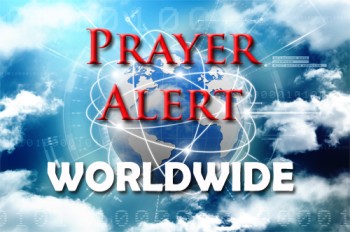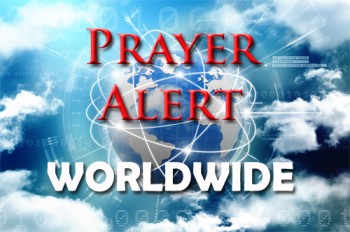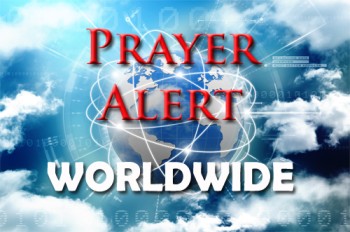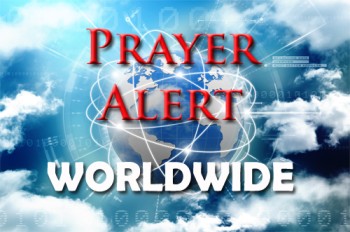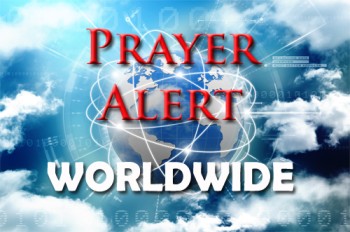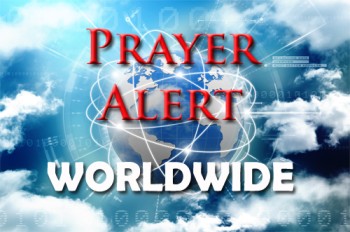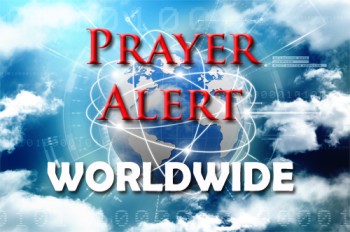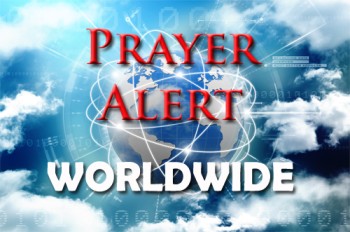Displaying items by tag: Africa
Mozambique: jihadists decapitate pastor, force wife to carry his head
According to military sources, suspected IS-linked extremists decapitated a pastor in Cabo Delgado on 15 December and forced his wife to carry his head to the police station. The monstrous act took place amidst a four-year long insurgency ravaging the country, leaving over 3,000 people dead and almost 100,000 displaced. Pray for the Lord to provide comfort to the wife of this slain pastor, and that He would heal her of the trauma she has had to endure. In a statement after the attack, IS boasted that its affiliate, Al-Shabab (not linked to Somali terror group), had killed dozens of security personnel and Christians, including westerners from what the statement termed ‘Crusader nations.’
Nigeria: one million expired doses of vaccine destroyed
The national primary health care agency (NPHCDA) destroyed 1,066,214 expired doses of the AstraZeneca vaccine that were donated to them in October but had to be used by November. The decision to destroy the vaccinations followed several testing processes showing it was necessary to destroy them to protect Nigerians from being harmed. NPHCDA’s director said they had an option to try and use these vaccines beyond the labelled expiry date, but decided to destroy them at the point they expired. The vaccines came with a short life span, some as short as two weeks. NPHCDA said while Nigeria appreciated the gesture of the donors, it was not in the interest of Nigeria that vaccines with a short lifespan were sent there. Only ten million Nigerians have been vaccinated to date: Nigeria’s target is 110 million people.
Zambian village believed for more - and got it
The villagers of Lihukwa used to fish the local rivers, but this barely provided them with enough food or income to survive. Families went hungry, there was no school or hospital, and accessing essential supplies was challenging. Pastor Teddy Chinyama visited the village and began offering Bible study. Then, as he got to know the villagers, he taught them how to use the land God had given them and trained them in growing a variety of crops. They began to hope for a better life, and transformation began. They successfully petitioned the local council to set up a health clinic and support the construction of a new school. New projects are springing up all the time. The villagers now grow their own food and sell vegetables at the market. People are now able to afford what they need, and hunger is a thing of the past.
Algeria: Advent - waiting for change
An Algerian message: ‘Christians eagerly wait for Christmas. We wait for joyous worship services, time to gather with family and friends, presents to open, and the celebration of the hope we have in Christ. But since authorities closed our churches in 2019, we won’t be able to celebrate Christmas together for the third year running. The churches are doing their best to take care of their sheep in an impossible situation and are waiting for heavenly intervention. In the midst of these hardships, Christians meet on Zoom, and watch church services on TV. We believe in a mighty God: nothing is impossible with Him.’ Pray for God to renew the spiritual strength of Algerian Christians waiting on God to shift the things beyond their control. May we join with the pastors who proclaim that the best is yet to come. Pray that Algerian churches will be permanently re-opened.
Horn of Africa: hunger
The Horn of Africa has experienced prolonged drought, rapidly increasing food prices, and escalating armed conflict. A nutrition crisis is exacerbated by climate change and Covid-19. Families are fleeing their homes in search of safety and arable land. In 2011 they experienced the worst drought in sixty years, and are still reeling from the effects. Somalia is experiencing full-on famine. Drought conditions in northern Kenya, much of Somalia, and southern Ethiopia are predicted to persist until at least mid-2022, putting lives at risk. The situation is already so bad that wild animals are dying in their hundreds and herders are reporting losses of up to 70% of their livestock. Kenya is home to vulnerable and endangered species which include lions, giraffes and the world's only two surviving northern white rhinos. The coast is also a transit route for migratory whales, dolphins and endangered turtles. The biggest-ever animal census was recently carried out from the marine parks and forest reserves of coastal Kenya.
Nigeria removed from US ‘Countries of Particular Concern’ list
Nigeria regularly sees ongoing massacres of indigenous Christians, and security forces imprison free thinkers for the ‘crime’ of blasphemy. Nevertheless, the USA removed Nigeria from its Countries of Particular Concern (CPC) list. On 2 December Rev John Hayab wrote an article in Nigerian Voice stating, ‘The US’s delisting Nigeria from its CPC list is appalling, as the persecution of Christians is still at its peak. Because Nigeria still has grave problems with religious persecution, this action is like a doctor discharging a patient from hospital even though they are still critically ill. What that signifies is telling the patient to go home and die. The USA was either ill-advised or does not care what happens in Nigeria. It does not comprehend that the current regime wants to impoverish and weaken the Christian community without letting the international community notice it. The Nigerian government employed highly professional lobbyists to convince the US state department to reach its decision.’
Sudan: answered prayer - coup ended
On 28 October you prayed for Sudan to find a workable political system so that coups and coup attempts cease. On 21 November Sudan's ousted prime minister Abdalla Hamdok was reinstated and released from house arrest. All political detainees were also released as part of a new agreement between the military, civilian leaders and ex-rebel groups. The coup had sparked weeks of mass protests with many deaths. Mr Hamdok agreed to the terms to avoid further bloodshed. The group of mediators, which included academics, journalists and politicians, released a statement outlining the terms of the agreement, which said the rules governing the transition towards democracy would be restored.
Nigeria: lawlessness and ‘fake news’
Luka Binniyat, a Christian journalist, faces three years’ imprisonment after reporting on attacks against Christian communities and critical assessments of the government’s response. He was arrested on 4 November and charged with electronically transmitting information ‘known to be false’. Many believe his arrest is aimed at silencing dissenting voices and intimidating Luka and Kaduna communities. Luka has persistently challenged the government on issues of security and killings in southern Kaduna. This charge follows his report on police failing to make any arrests after gunmen killed 35 people in two separate attacks on churches. He said, ‘In Nigeria, police decry massacres as “wicked” but make no arrests’. Pray for Luka’s release and for an end to criminalisation of journalism. Meanwhile bandits invaded Emmanuel Baptist Church, service killing two, seriously injuring three, and kidnapping 66. Rev Joseph Hayab said, ‘The abducted worshippers are in danger and require urgent government intervention.’ The insecurity in Kaduna state has grown beyond imagination and is threatening Nigeria’s peace.
Uganda: Muslim cleric shot dead after terrorist attack
Security forces in Uganda have shot dead a Muslim cleric, Sheikh Muhammad Abas Kirevu, accused of working with an armed group linked to suicide bombings in Kampala. He had recruited for cells run by the Allied Democratic Forces (ADF) - rebels who have pledged allegiance to IS. On 16 November four people were killed and over thirty injured by attackers on motorbikes who blew themselves up in the city: IS claimed responsibility, but officials have blamed the ADF. Twenty-one people have been arrested since the attack, in what police have described as the dismantling of ADF terrorist cells in Kampala and across the country. A police spokesperson said 13 suspects, including several children, had been intercepted while trying to cross the border into DR Congo. Also, on 17 November four suspected ADF operatives were killed near the border.
Ethiopia: a seemingly inescapable quagmire
Since hostilities began last November, there have been rapes and massacres of civilians on a large scale. As far back as January, aid agencies were sounding alarms about how much worse the situation could get. Continued fighting, bureaucratic hurdles, and aid blockades have since led to a continuing famine affecting hundreds of thousands of people. More than two million people have been displaced from their homes, and tens of thousands have died. The declaration of a nationwide state of emergency by the federal government on Tuesday has triggered fears of more instability. The war has degenerated into a brutal conflict to crush and erode Tigray, and talk of elimination of entire ethnic groups has been normalised. The USA has sent a special envoy to Ethiopia for talks, and on 16 November there will be a meeting of the East African bloc Intergovernmental Authority on Development to discuss the worsening conflict.
